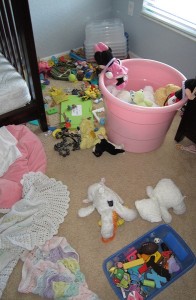Hollywood and the Bible have something in common: they’re both full of stories, not to mention the colorful personalities populating them. God’s plots and those of filmmakers could be skewed any way the authors choose, but the movie that sells the most tickets is usually the one with the most reprehensible characters in its script. We’d rather see actors make trouble than watch halo-worthy people do everything right.
God knows that, which is why he’s included so many off-kilter stories in the Bible. It’s more of a tell-all book than a goodie-two-shoes tale. He could have shown us only the holy side of his players, but instead he spells out the whole story, even the seedy parts.
How come?
It’s probably to convince us his Word is about real people, people who may have lived thousands of years ago but are really very much like us. Once we buy into that, we can learn from their rebellious behavior (and its resulting consequences) as much as from their cooperation with God. Probably more so.
Lively guys like superman Samson, bully Goliath, longsuffering Noah, first-man Adam, temper-tantrum Jonah, and dancing David are intriguing. All of them got into massive messes, and as we study those exciting (and sometimes far-fetched) stories, we shake our heads and remember what not to do.
When Jesus arrived on the biblical pages, he continued to acquaint us with people who were out-of-the-ordinary, even strange, putting his words and experiences into everyday contexts. Take his 12 disciples, for example, men of all ages, educational backgrounds, and professions. Some were gracious, others abrasive, but as we get to know them, we can see ourselves in their behavior.
Personally I relate to Peter the most. During the 3 years of Jesus’ ministry, Peter was probably about my age, older than the rest of the men and because of that, supposedly wiser. Instead we’re shown an impetuous character who was often reckless in his responses to circumstances. For instance, betraying and abandoning his dear friend Jesus when he needed him most.
In another incident (this one in John 21), Peter plays the lead in a grilling session that takes place at the beach, and I don’t mean on a Weber. Jesus had risen from the dead, and a handful of his disciples had just finished a spontaneous picnic breakfast with him at the edge of a lake.
Peter, probably unsure of where he stood with Jesus after his 3 blatant lies about him (using swear words for emphasis), was no doubt thrilled to be sharing a meal with him again. After they’d all finished eating, Jesus turned toward the impulsive Peter and zeroed in on him with a thorny Q&A session.
(Concluded tomorrow)
Jesus said to them, “Come and have breakfast.” None of the disciples dared ask him, “Who are you?” They knew it was the Lord.” (John 21:12)





